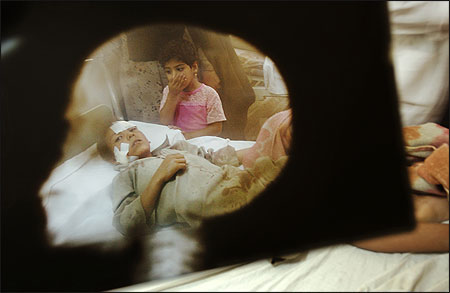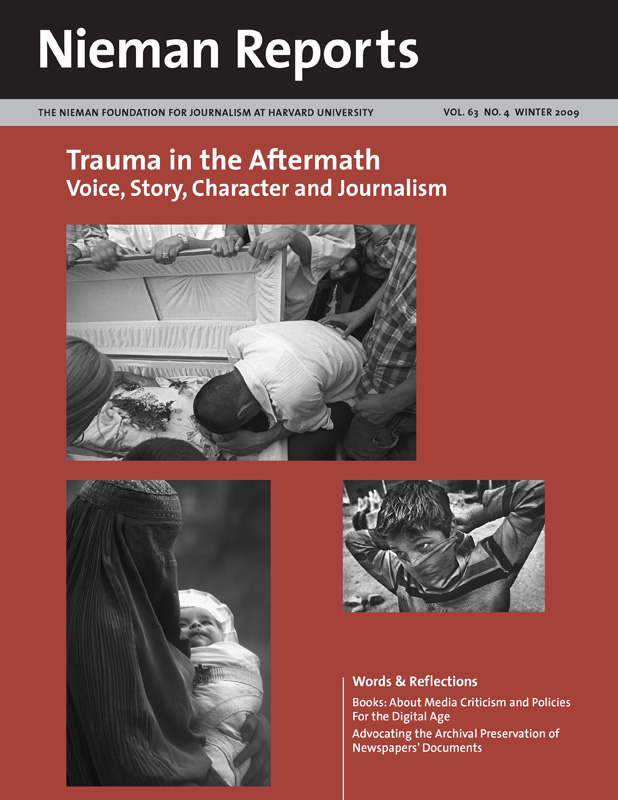
A doctor in a Fallujah, Iraq hospital raises an X-ray to show head injuries to this 9-year-old boy whose home was hit by American airstrikes. Three members of his family, including his father, were killed and his 12-year-old brother was also seriously injured. Photo by Thorne Anderson/Corbis.
Trauma resides on pathways carved by acts of violence, witnessed and experienced, and by the close proximity of tragedy. The sudden upheaval visited on an individual, whether she is the victim or a person left to grieve, and the pounding pressures of war’s relentless toll leave people first without words and then, for some, tugged into the grip of trauma’s debilitating hold.
Enter the journalist or the poet, the photojournalist or the artist, each there to find some way to express what it is like to live in the aftermath of such wrenching moments. The approach each takes differs, but they enter this effort with the shared desire for genuine connection.
More information about this event is available at the Aftermath conference Web site.To this end, Stefanie Friedhoff, special projects manager at the Nieman Foundation and a 2001 Nieman Fellow, took the germ of an idea—a multidisciplinary exploration of how to tell narratives about the human condition in the aftermath of violence and tragedy—and in collaboration with the Dart Center for Journalism and Trauma and the Dart Society created a forum where 110 journalists, trauma researchers, and scholars shared information and discussed possibilities. From recordings of their presentations and conversations this issue of Nieman Reports emerged; edited excerpts appear on our pages, and on our Web site audio clips can be found. Information about this audio content is woven into the print edition to guide this multimedia experience.
At the close of this three-day gathering at the Nieman Foundation, Friedhoff recited a poem of sorts that she’d composed out of striking snippets of revelations. A few lines are repeated here, inviting you to listen to her closing words:
No comment.
Intimacy. Obscenity.
Emotions carry enormous cognitive content.
It is essential to allow and integrate them as a critical source of information.
Every generation has its own sense of meaning.
God came to my city to cleanse it of its evil.
Let her words serve as your introduction to a transformational event in the lives of those participants whose words await your eyes. As Friedhoff envisioned, by learning about trauma’s impact and the craft of storytelling we can push past what is formulaic and numbing into places where the touch is raw and real.


